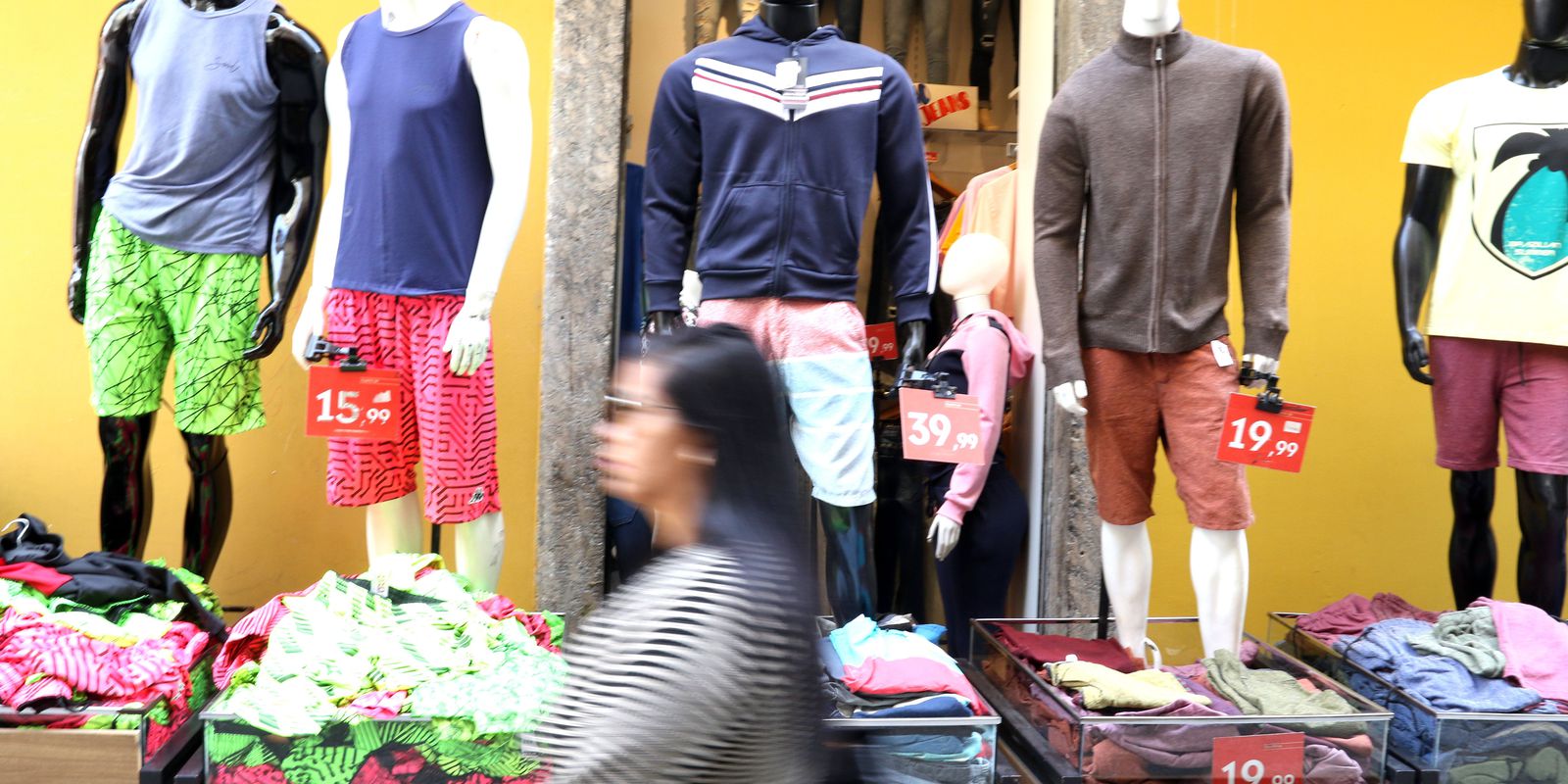The Commerce Entrepreneur Confidence Index (Icec) fell 3.6% in January compared to the previous month, already discounting seasonal effects, and reached 119 points. According to the National Confederation of Trade in Goods, Services and Tourism (CNC), which measures the indicator, this is the second consecutive drop. The index ranges from zero to 200 points. Scores above 100 indicate optimism.
Compared to January 2021, optimism fell by 1.7%. According to the CNC, with a monthly reduction in all indicators, trader optimism reached its lowest level since April 2022. The data was released today (27) by the entity.
The 6.4% drop in the short-term expectations index drew attention. According to the survey, with the slowdown of economic activity in general, but mainly retail at the end of last year, traders’ perspectives on the economy reached 125.7 points and on the trade sector at 139 points. The two are the lowest levels since April 2021.
CNC president José Roberto Tadros pointed out that given the slowdown in the creation of jobs in the job market and the high level of household debt, consumers are becoming more cautious, a scenario that should persist through 2023.
“The trade of goods and services, which represents a large part of the Brazilian GDP and generates the majority of formal jobs, is feeling the slowdown in sales caused by the combination of persistent inflation and high interest rates”, he observed.
The share of retailers who believe in a worsening economic scenario in the coming months rose from 12.1% in November to 31.4% in January. In terms of retail performance, the percentage of merchants who have the prospect of worsening sales, went from 9.3% in November to 23.7% in January.
“Traders have been pointing out, for two months now, a rapid deterioration of expectations about the performance of economic activity and trade in the first half of this year”, pointed out the CNC economist responsible for Icec, Izis Ferreira.
Investments
Izis Ferreira points out that with the reduction in sales, retailers are redoing their planning for 2023. “The worsening perception of current conditions and expectations is leading traders to reassess investments in the company and in replenishing inventories”, indicates the economist.
The Icec also pointed to the fifth consecutive fall in the intention to invest in the business, which retreated 3.9% from December to January, making the index reach 109.4 points. Of the total number of merchants, 42.4% intend to reduce investments. The percentage is the highest since June last year.
According to the CNC, shopkeepers in all retail segments revealed that they are going to reduce investments. According to the entity, the highlight of the indicator is the fall of 5% compared to December among durable goods retailers, which led the index to 103.4 points.
With a drop of 0.3%, there was also a worsening in the assessment of traders on the level of inventories in January. The indicator reached 94.6 points. The share of merchants who assess inventories as adequate represents 60% of total retailers. It is the lowest since June 2021.
“Interest rates will remain high at least until the third quarter of this year, which should reverberate negatively on the consumption of goods dependent on credit”, said Izis Ferreira.
Also noteworthy was the 10.4% reduction in the intention to hire new employees, compared to January 2021, added to the 6.7% drop compared to December. The index stood at 122.9 points, still on the optimism spectrum.
In the view of the economist, traditionally, as it is a period of lower sales, January is a time of reduction in hiring. In addition, the hiring of part of the temporary employees carried out until December leads to a reduction in the intention to create new vacancies.
icec
According to the CNC, the Commerce Entrepreneur Confidence Index (Icec) is a leading indicator, calculated exclusively among decision makers in retail companies. The intention is to detect trends in the sector’s actions from the entrepreneur’s point of view.
The sample is composed of approximately six thousand companies in all capitals of the country. The index assesses current conditions, short-term expectations and investment intentions of trade entrepreneurs.
















